
"Every time I see a pile of books on the street, I feel happy," says Yael Netzer from Tel Aviv, the founder of the “Books on the Street” Facebook group. The group is just one of several Facebook groups dedicated to books that have been left – or thrown away – in public spaces, and to the people who like to rummage through piles, save abandoned books, and find a bargain.
Netzer, a guest lecturer in computer science at Ben-Gurion and Haifa universities, founded the group three years ago. “For me it is just a joy every time someone finds books and uploads a picture," says Netzer. “You can find surprises, books you forgot existed, pictures and autographs."
"Opportunity to give books life"
Among the group members, who now number 5,333, there is ongoing controversy as to whether it is appropriate to leave books on the street. A member wonders, "Is the Tel Aviv Municipality aware of the books being left in its streets?" Another asks, "Is the city doing anything about them? For the writers who wrote them?"
Heartbreaking photos prompt these questions. An entire library was thrown away a few days ago on Arba Ha'aretzot Street in Tel Aviv. In the dead of night, hundreds of books, including hundreds of archeology books, were left on a bench and scattered on the sidewalk.
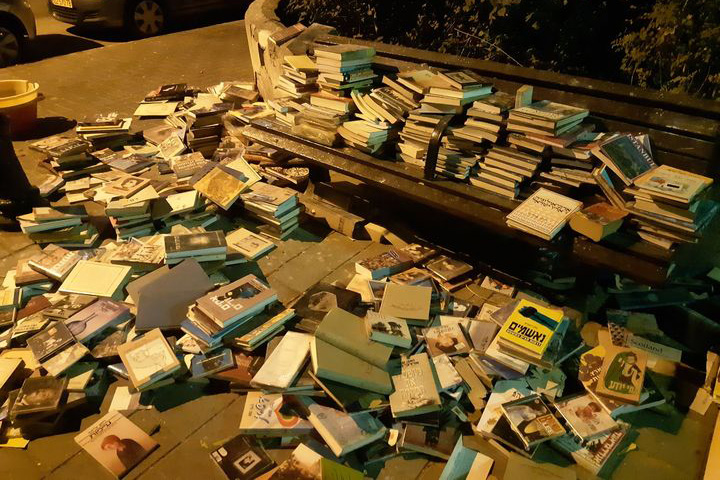
"Is there anything left?" One of the group members wonders. "Usually books are collected in the morning by sanitation people," someone replies. "I'm there right now, and it seems the majority have been thrown in the bins here," reports another, adding a picture of a green bin full of books, "quite a few left on the bench."
"That sucks so much," another friend responds. "What's up with people? At the very least they could donate them to some municipal library or something," someone writes, and then turns cynical: "No municipal library is interested in these books."
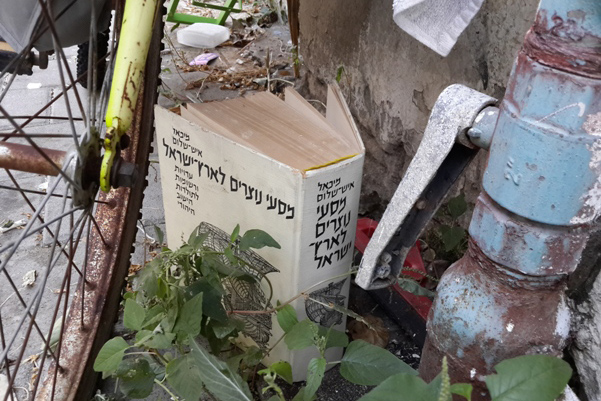
"It's not a tragedy to take books out on the street," says Netzer. "A book is a desirable and interesting object and it does not have to be in a home library. I don’t like rules. I see it as an opportunity for the books to get into new hands, to give them life."
"Dad's books roam the city"
To prevent book dumping, cities have begun supporting open air libraries. Be’er Sheva established reading stations at several locations throughout the city.
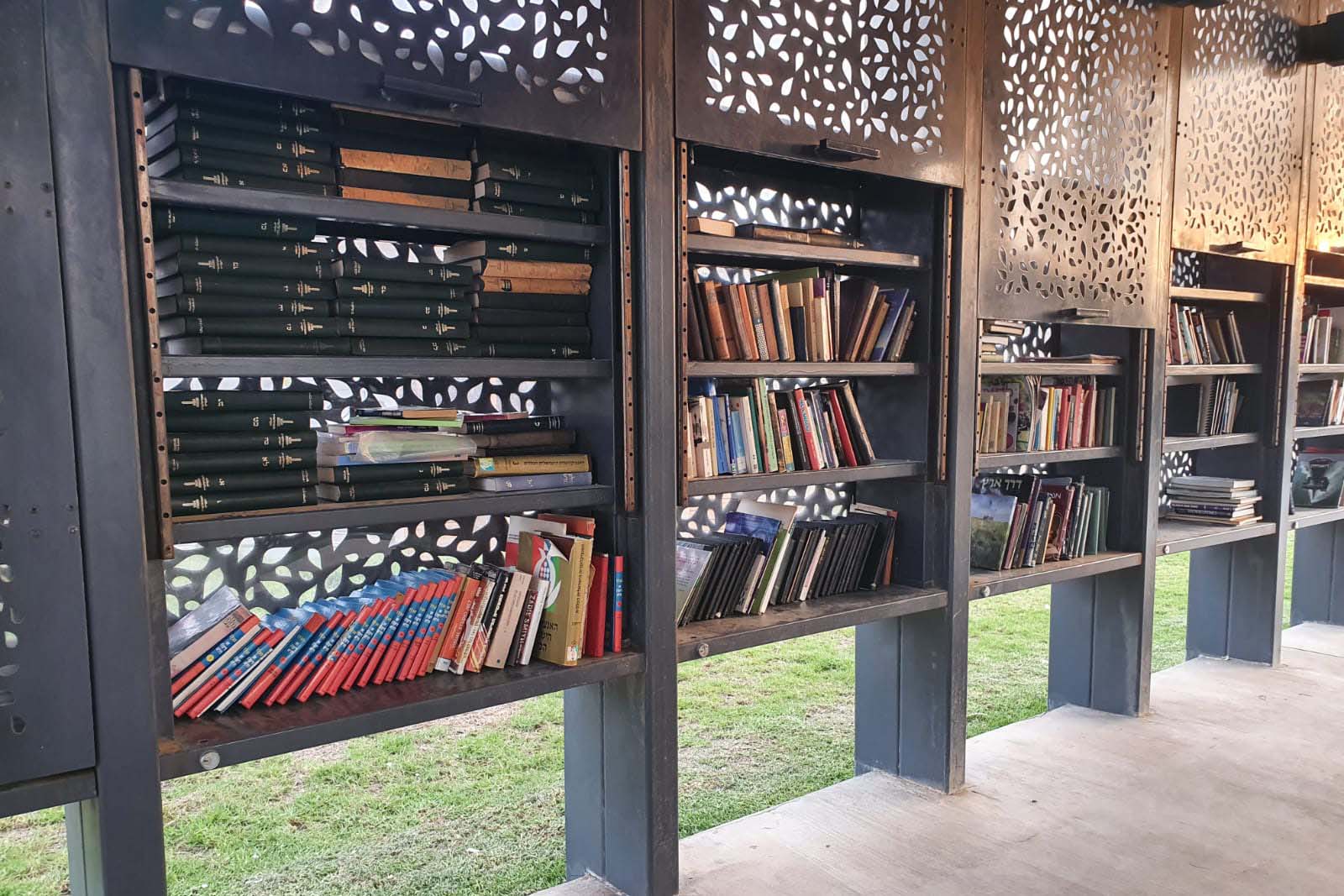
There are also private initiatives, like the library Sarit Percol established in memory of her late father Dov Percol, who passed away a year ago. Percol’s father was a leader and member of the Dan Cooperative, an Israeli public transit company that was owned cooperatively by members until 2002. "My father loved to read, almost every day in his life he read a book. I got my love of books from him,” Percol says.
“I can't see a book and not adopt it,” she adds. “There are people who can't see orphaned books and not take them."
Percol, a former book translator and journalist, decided to set up the library next to the courtyard of the house where her father lived on Frankfurt Street in Tel Aviv. The idea came to her during her father’s shiva. "I designed a bookshelf and arranged some of his books in it," she says.
Each book has two handwritten messages on the front pages. One is Percol’s father's name, year of birth and death, and the other with the slogan he believed in: “A house without books is like a room without windows.”
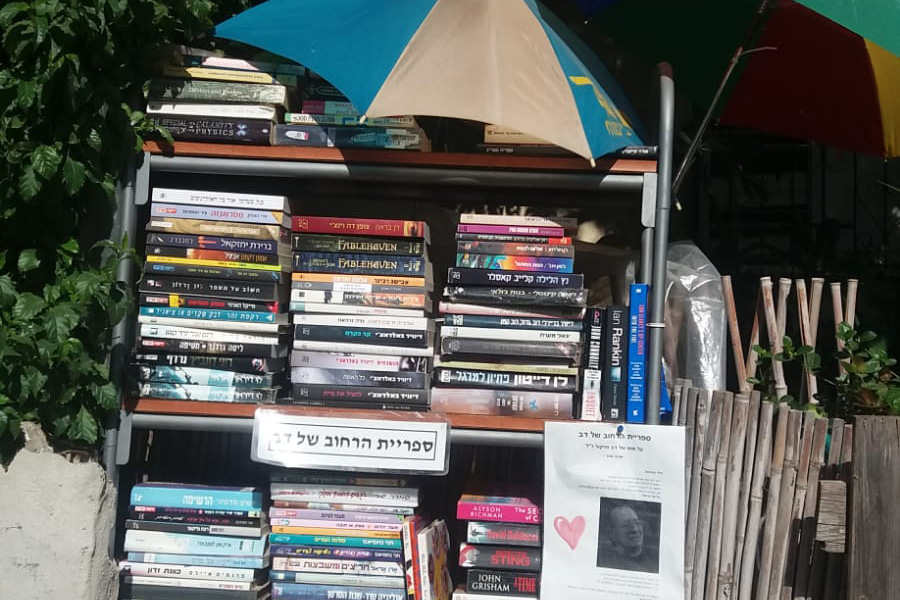
Next to the library, Percol hung a page with a picture of her father and his story. "I invited passersby to read about Dad, to take a book and return it, or to put another book in its place. I told myself I didn’t know if it would work, but I would try, and suddenly people stopped and read what we wrote. The neighbors reacted excitedly and told us stories about Dad. Someone said that he was the kind man who would always say good morning to him, and he would sit in the garden and read a book."
The existence of the library, she says, has spread by word of mouth. It mainly attracts readers from the street, but not exclusively. "Because the street is parallel to Dizengoff Street, cars are parked here, so even people who are not neighbors stopped and saw. Someone wrote me an email that she saw the idea and did the same."
Every Friday, Percol arranges the library, "throws and takes out books that have no takers. The house has more shelves full of good books, so every time I replenish the inventory. His name and his books roam the city and maybe beyond the city, and people read and remember him. I feel that we, my sisters and I, commemorate him in this way. "
"I'm a bookworm, I have a lot of recommendations"
Avital Allenberg lives in the Shambor neighborhood of Haifa. She likes to peek out the window and watch passers-by examine the books in the library she set up near the courtyard of her house on Margalit Street. "There's nothing more heartwarming than seeing from the window a person stopping, looking and taking a book. I see them, but I give them privacy, even though I'm a bookworm and I have a lot of recommendations."
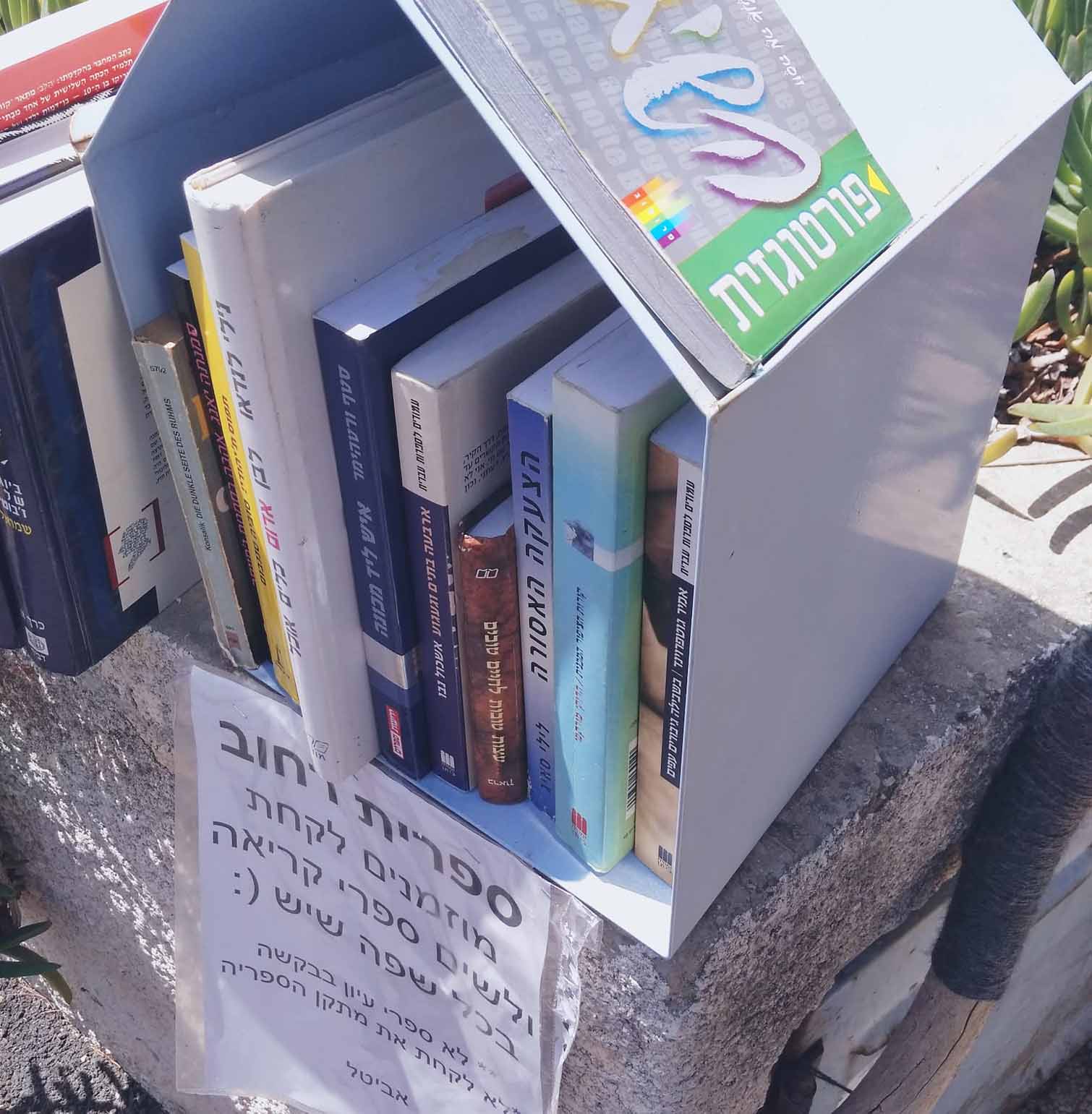
Allenberg previously worked as a library designer. She designed and bent the metallic structure of the library, which looks like a large nest. "More than three years ago I came up with a new product and decided to see if it could be popular. I first created it for myself as a street library."
She built the library on the path to a popular jogging destination for residents. She says that many people now change their walking route so that "they can pass by the library and see what is there."
At first she placed her own books in the library. "Back then I still designed libraries and a lot of libraries would give me surpluses. I set up a Facebook page and did advertising. Today I hardly have to bring books to the library, it works by itself."
Taking care of the library, she says, requires dealing with the daily level: "We check that it is tidy, that there are enough books. At home I have a bookcase in which I keep more books, because the library only has room for ten."
"Do not throw away on rainy days"
The approaching winter is a cause for concern among book lovers. "If you are throwing away books," says Netzer, "then do not throw them away on rainy days. Put them in a protected place."
Percol says that she contacted the director of the libraries in Tel Aviv. "I asked them to help us make a library on behalf of the municipality because in winter it is a problem. We cover the books with plastic, but it is less aesthetic. We wanted the municipality to donate a closet with a transparent closure. They said they would check, but have not gotten back to me yet."
The Allenberg Library does not operate on rainy days. "I once tried to put up an umbrella but they took it. I’m not angry. I guess whoever took it needed it."
"Take books, read"
Guy Super-Singer, an IT professional from the Matzliach moshav, has just set up a Facebook page that aims to connect street libraries across the country and make them more accessible. "I want to encourage people to read more. There’s coronavirus now, the shops are closed, but there are libraries next to you. Take books and read."
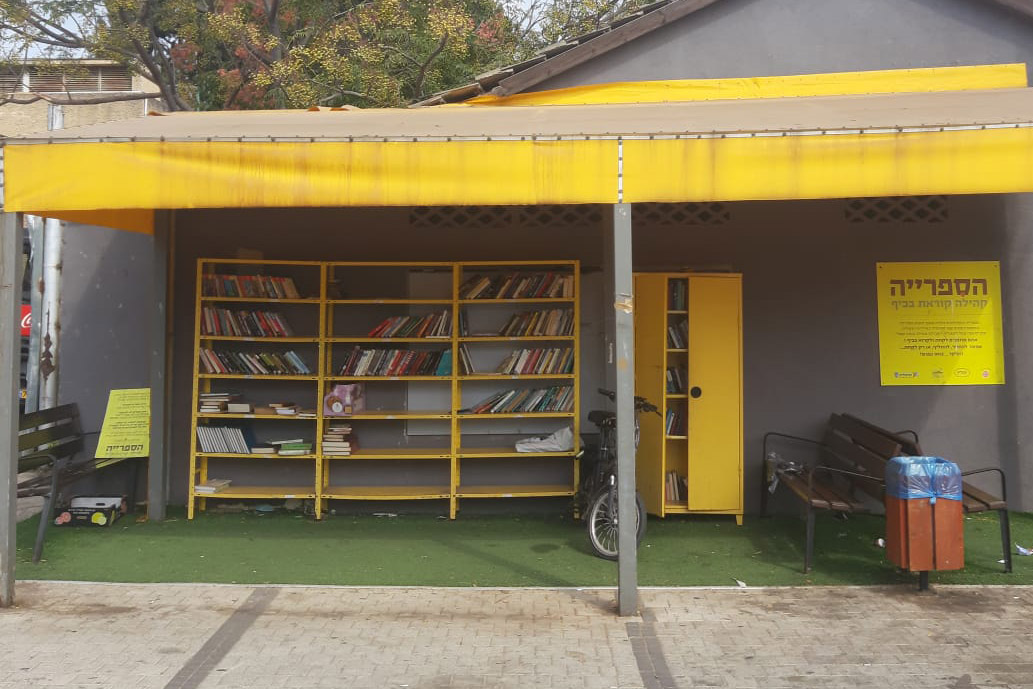
Super-Singer loves to read. "I have a full house of books: science fiction, math, science, and Israeli history," he says. His love of street libraries is nothing new. "I’ve been coming to these libraries for a few years, I take, I bring,” he says. “This week I was in a very tidy library of the Herzliya Municipality on Berl Katzenelson Street. A large corner, lit at night, with neat signs."

"Unfortunately," he says, "thousands of books are thrown away every day. Most people have no place to keep them. They move, do not want to be weighed down, and on the other hand, a person who has read a book and loved it will not want to throw it away, so street libraries are a great solution."
Recommendations for establishing a street library
Allenberg, the Haifa-based street librarian, has recommendations for those interested in setting up a street library: "It is very simple. First of all, from past experience, it should be on your property, and not in public space, and it must be fixed in place with screws, because if it is a bookcase or box, they will take it."
Other than that, "from what I see, it requires maintenance of at least twice a week, taking out torn books and collecting junk; and of course if you don't do publicity people will not know it exists."






